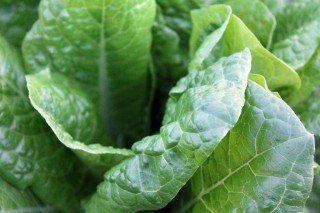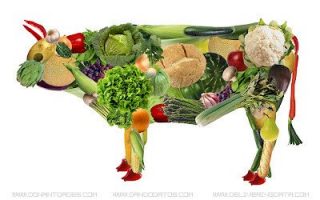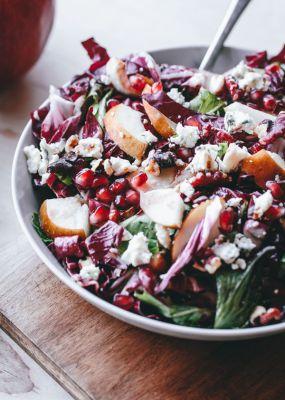Dieting, food and exercise philosophies are seductive, even addictive. They promise us a flawless body, perfect skin, lots of energy and a stable mood. We can’t get enough and we keep looking for the next big thing to acquire the perfect physical shape and optimal health. So what is the right way to eat?
The optimal diet does not require dogmatic adherence to calories or percentages, macro-nutrient manipulations, the removal of food groups, blood testing or genetic blueprints.
Neither should we be obsessing about calories or carbohydrates, or placing numerical values on food, like GI and GL. All this is confusing and long term adherence leads to stress, failure, and more confusion. These approaches lack sustainability.
The modern nutritional landscape is complex and, in my view, often contradictory. We’re told eggs are bad, then they’re good; nuts are fattening, then they’re not; eat lots of fruit, then not too much. We should go raw, then choose vegan… dizzy yet. It’s no wonder we’re confused.
Eat food. Not too much. Mostly plants
We can’t simply opt out — we have to eat, we have to drink. But is who is right?
The reality is we are seriously depleted of nutrients. Our guts are overloaded with anti-biotic residues and we have serious inflammation due to poor diets, food combinations and the hormones, chemicals and sugar we consume daily. We are literally shutting down our immune system.
The most sensible dietary approach is that advocated by author and “foodie intellectual” Michael Pollan whose philosophy is simply: Eat food. Not too much. Mostly plants.
By “food” Pollan means real food, not creations of the food-industry. Real food doesn’t have a long ingredient list, isn’t advertised on TV, and doesn’t contain food additives like maltodextrin or sodium tripolyphosphate. Real food is what our great-grandmothers would have recognized.

Pollan notes that populations that eat modern-day western diets, i.e. loads of highly processed foods and meat, added fat and sugar and refined grains suffer high rates of obesity, type 2 diabetes, cardiovascular disease and cancer. But populations that eat more traditional diets don’t.
Veganism
The primary benefit of a vegan diet is that the removal of animal products usually necessitates a higher amount of nutrient-rich plant produce. The downside could be the inclusion of too much heavily processed food, soy protein, flour, sweeteners and oils. Nutritional deficiencies are common and anyone wanting to adopt this lifestyle should be mentored into it.
The Paleolithic diet
Generally, followers of this diet eschew what they believe comes from modern agriculture (wheat, dairy, legumes, grains for instance) and choose meals full of meat, nuts, and vegetables—foods they claim are closer to what hunter-gatherers ate.
My concern with the paleo diet is that it assumes the options available to our caveman ancestors are still available now. But, unless you’re willing to hunt for your food, they’re not. As Pollan explains: animals bred by modern agriculture—which are fed artificial diets of corn and grains, and beefed up with hormones and antibiotics—have nutritional profiles far removed from wild game.
The paleo diet has some positives: it discourages the consumption of dairy, sugar, and alcohol — all of which cause excess inflammation in the body which is likely to blame for a host of chronic diseases, including cancer, diabetes, and heart disease.
My approach involves common sense and logic. When choosing your diet, focus on health – a healthy body will be naturally slim.
Choose food principles that you understand:
- Focus on health, not weight loss. Eat nutrients, not calories. Eating lots of nutrient dense foods will naturally lead to weight loss.
- Eat food of the highest quality possible – fresh, organic, free range and grass fed. So, no processed foods, sugar, refined carbs, soy, gluten, trans-fats, MSG and alcohol.
- Choose chemical and pesticide-free food.
- Choose local fruit and veg – in season.
- Wild or line-caught seafood only.
- Eliminate all forms of sugar and starch
- Support local farmers: try shop at farmers’ markets.
- Avoid anything with a shelf life.
- No dairy- we are not designed to eat dairy, cut it out!
- Eat good fat (oily fish, raw nuts, avos, seeds). This does not make you fat, it feeds your brain!

- Soak up a little sunshine daily – it’s a natural super nutrient.
- Avoid high protein diets. Instead, go for a high volume of green vegetables, essential fats and quality animal protein in the smallest amounts. The health of any meat is directly related to the health of the animal it came from. Meat from animals fed unnatural foods (i.e. grains and other common filler), shot full of hormones and antibiotics and forced into crowded, cruel and stressful conditions, is not healthy.
- Drink purified uncontaminated water.
- Make your meals with love and care and bless your food. Then, enjoy your meal. Be at peace with your plate, listen to your body. And don’t use food to fill emotional voids.
- Love yourself enough to make better food choices. Don’t expect the government or the food industry to be responsible for your health. It’s your choice.
- Supplement your diet with a scientifically backed multi-nutrient.
Some other lifestyle tips to complement your diet:
- Don’t over exercise. Go for short bursts of high intensity exercises.
- Walk more and sleep more.
- Stress is a killer: seek stress management techniques that work for you.
It has never been more imperative for us to understand the correlation between what we eat, think and feel and the direct impact of these on our state of health and quality of life.
Don’t obsess. Break the rules, but only once in a while.
For healthy food choices by one of the world’s greatest minds on nutrition, Dr Geert Verhelst, go here.
This guest post was authored by Vanessa Ascencao

Vanessa Ascencao is a dynamic, inspirational and highly qualified nutritional consultant. She brings a fresh and revolutionary approach to health, wellness and personal growth, having spent 10 years studying, researching and working with some of the greatest minds in metaphysics, nutrition, health and fashion. She’s helped celebrities, business executives and others transform their lives through a unique mind-body approach to health and nutrition.






![women [longevity live]](https://longevitylive.com/wp-content/uploads/2020/01/photo-of-women-walking-down-the-street-1116984-100x100.jpg)










